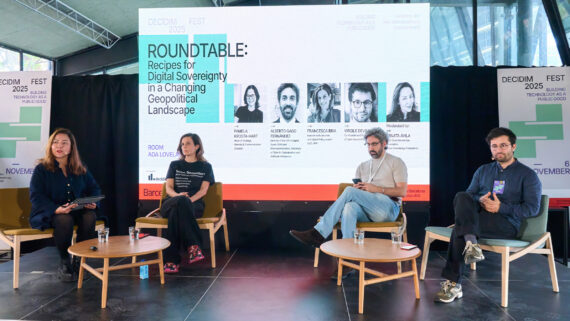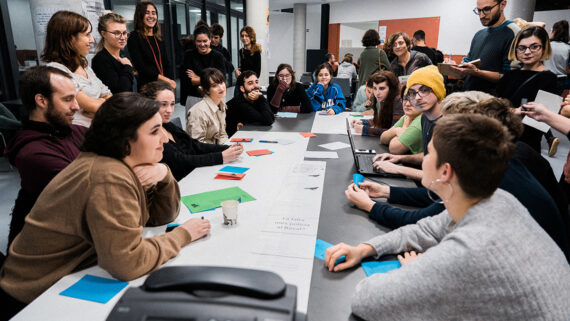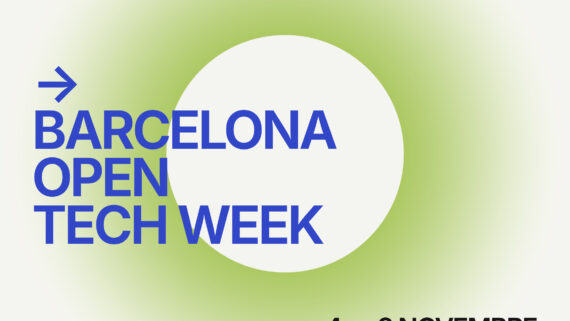
The venue hosts essential preliminary activities, such as a round table discussion to combat hate on social media with groups working to address this situation, and a workshop to train professionals in diverse and inclusive narratives. It's a key opportunity to raise awareness and take action against the discriminations that surround us.
Barcelona is preparing to host one of the most relevant events of the year in the fight against racism and discrimination. From December 9 to 11, the Global Forum against Racism and Discrimination will bring together over 1,000 people, activists, and experts to discuss how to confront the social injustices that still persist. Before this major meeting, the Canòdrom is organizing two preliminary activities that promise to generate debate and awareness.
This initiative comes at a critical moment. The Observatory of Discrimination in Barcelona has published concerning data for 2023, showing an alarming increase in incidents, especially due to racism. The report reveals that this year 865 situations of discrimination have been recorded in the city, an increase of 234 cases compared to the previous year.
The report also highlights the rise in hate speech, with the LGBT-phobic stigmatization that is normalizing in a context where conservatism regarding sexual rights is gaining strength, fueled by far-right discourse both in public spaces and on social media. Incidents such as photographing homeless individuals and posting these images online, as well as graffiti on the façades of clinics that offer voluntary pregnancy terminations (IVEs), have been reported.
All of this contributes to an environment of contempt that can manifest in many ways, whether through written, oral, or audiovisual messages. Many of these discriminations on social media (X — formerly Twitter, Instagram, Facebook, or TikTok) go unreported, even though they are spaces where harassment and verbal aggression occur.
Confronting hate online: An essential discussion
Why are social media such fertile ground for hate speech? How is money related to this phenomenon? And, above all, what can we do to build another internet and leave no one behind? On October 31, from 6:30 to 8 PM, the round table Deactivating Hate: Let’s Combat Discrimination in the Digital World will take place.
Social media has become a fertile ground for racist, LGBT-phobic, and other forms of hate speech. This activity will bring together activists and experts from organizations such as Fembloc, cuellilargo, És País Valencià, and Proyecto UNA to address key questions.
The data is alarming. According to the Observatory’s report, of the 865 cases of discrimination recorded this year in Barcelona, 230 are for racist reasons, 217 for health, and 205 LGBT-phobic assaults. Social media often amplifies violence, severely affecting the mental health of those who experience it. This round table aims to shed light on and find solutions to this phenomenon.
Tackling racism: training for professionals
With the goal of moving from theory to practice, on November 20, from 10 AM to 1 PM, the workshop Face Racism! will take place, led by Xavier Giró, promoter and director of the research group Observatory of Conflict Coverage and a Political Journalism professor at the Faculty of Communication Sciences at UAB for decades. This session is specially designed to help communication professionals and technical staff to detect discriminatory narratives and to build inclusive messages.
Giró will also discuss how beliefs and ideologies influence our way of explaining reality, and how we can transform these mental frameworks to be more inclusive. The objective? To create narratives that do not discriminate against anyone, and to foster a discourse that builds rather than divides. In a world where the media have great power to influence public opinion, this training is essential to avoid falling into racist, sexist, or xenophobic prejudices.
A city that says enough
Barcelona is the city that leads the discrimination data in the metropolitan area, with 31% of the cases, according to the Observatory’s report. Moreover, more than half of the affected individuals have suffered multiple discrimination, often for being women or for ethnic origin, health, or sexual orientation. This data highlights that, despite being a diverse and open city, there is still much to be done.
The preliminary activities for the forum at the Canòdrom are just the beginning of a necessary debate that will culminate in December with the great global forum. The aim is to share solutions, raise awareness, and find effective strategies to combat all forms of discrimination.







